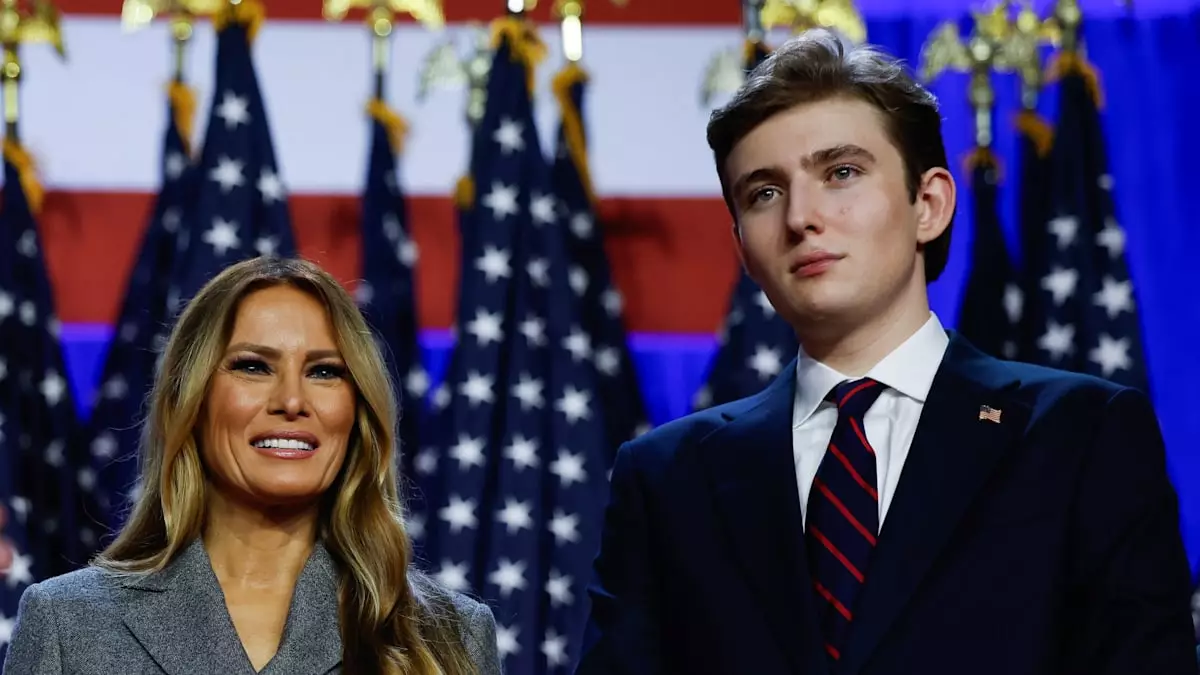In an era where the truth can often be overshadowed by rumor and speculation, First Lady Melania Trump’s recent public statement serves as a reminder of the power and necessity of setting the record straight. Amidst a backdrop of intense political discourse and familial scrutiny, a seemingly innocuous rumor swirled through the internet: that President Donald Trump’s recent tirade against Harvard University was somehow related to his son Barron’s application status. However, Melania took it upon herself to firmly dispel this notion, asserting that Barron had never applied to the university. This incident highlights not just the personal struggles of public figures but also the challenges of navigating a media landscape that frequently blurs the lines between fact and fiction.
The Harvard Controversy
Donald Trump’s contentious relationship with Harvard has been fueled by allegations of discrimination and his attempts to reshape the educational landscape. In recent weeks, the former president openly criticized the university, alleging bias against certain student demographics while simultaneously enacting measures to cut federal funding. More dramatic, though, is his push to dismantle the university’s diversity, equity, and inclusion programs, prompting federal lawsuits from Harvard in retaliation. This type of combative approach is emblematic of Trump’s method of engaging with institutions he perceives as adversaries. His outburst regarding Harvard undoubtedly set the stage for various interpretations, and thus the connection many made between the school and Barron emerged almost predictably amid the chaos.
The Role of Social Media in Shaping Narratives
Senator Sheldon Whitehouse’s social media post asking, “Can’t help but wonder how many Trumps got rejected by Harvard,” undoubtedly escalated the rumor mill. It exemplifies how social media can become a breeding ground for speculation, fueled by the immediacy and often sensational nature of online discourse. In a world where public figures can be easily misrepresented, the responsibility lies not solely with them but also with consumers of media. Individuals often take comments at face value without digging deeper into the context, allowing hearsay to fester unchecked. Melania’s decisive response through her communications director is more than just a rebuttal; it is a powerful statement against misinformation.
Barron Trump: Emerging Individuality
In a refreshing twist to the narrative, Melania highlighted Barron’s recent enrollment at New York University’s Stern Business School, drastically different from the expected familial lineage of attending Ivy League schools like the University of Pennsylvania. This divergence is not just personal; it reflects an evolving landscape in educational choices, especially among the younger generation, who often pursue paths that resonate more with their personal identities. The fact that Barron chose NYU, a prominent institution in its own right, speaks volumes about his aspirations and individuality. Both parents have affirmed their pride in his intelligence and adaptability, suggesting a shared commitment to forging a unique path, unmarred by political expectations.
The Influence of Politics on Student Life
In conversations regarding Barron’s college experience, Melania emphasized the distinct challenges that come with being the child of a high-profile political figure. Regular collegiate pursuits are inherently laced with pressures, but for Barron, the stakes are considerably heightened by his father’s notoriety. Melania poignantly remarked that his experience was inherently different, reinforcing the idea that prestige and scrutiny often overshadow personal achievements. Yet, she also highlighted Barron’s role in influencing the 2024 election landscape, which underscores the importance of youth perspectives in political dialogue.
Generational Insight and Political Advocacy
Melania further elaborated on Barron’s comprehension of Gen Z’s voting paradigms, suggesting he possesses an acumen that bridges his youthful outlook with the deeply polarized political reality of today. This acknowledgment of generational shifts in political engagement is vital. It suggests that younger voices increasingly play a pivotal role in shaping political discourse—vital in a media-saturated world where the avenues for outreach have multiplied dramatically. The assertion that Barron has imparted valuable advice to his father illustrates a fascinating dynamic within their family, where ideals and insights are exchanged beyond traditional contexts.
In dispelling the rumors surrounding Barron’s academic trajectory and shedding light on the complexities of their lives, both Melania and Donald Trump illuminate the challenges of parenting in the public eye. Each statement and decision carries weight, as their family balances personal aspirations against the backdrop of relentless scrutiny.

